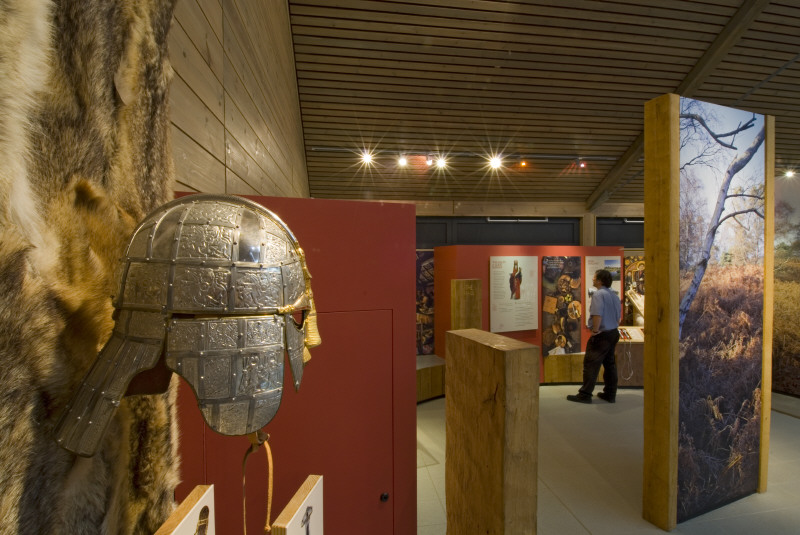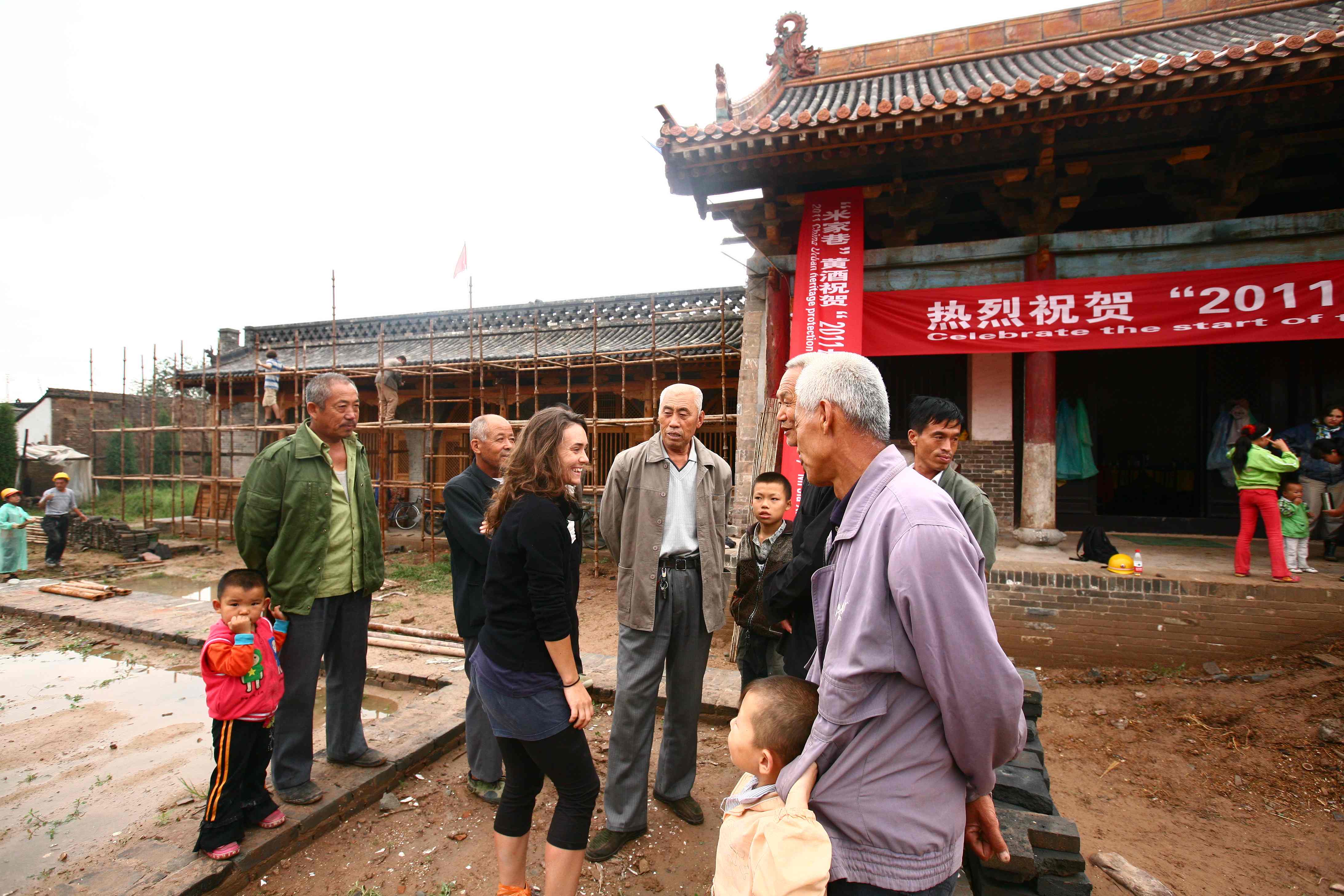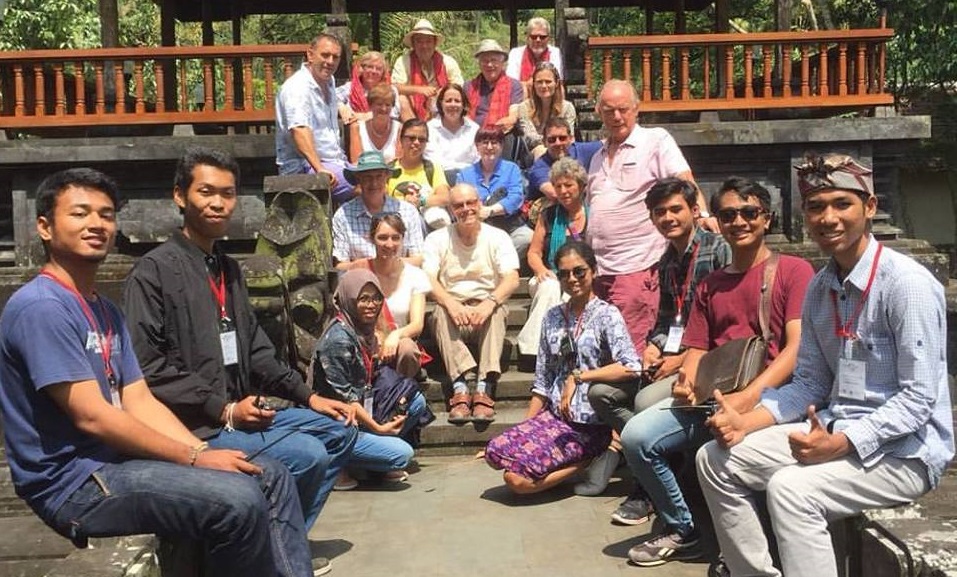-
International exchange (Weekly blog, 24 September 2017)
Posted on September 25, 2017A blog by Catherine Leonard, Secretary-General
Time to share our most precious assets …
The subject of international placements, exchanges and secondments came up often during the INTO Conference in Bali. At the closing ceremony Fiona Reynolds urged delegates to come forward with concrete offers and suggestions. As a consequence we are now beginning the match-making process to help make these happen.

Participants from Poland, Czech Republic, Hungary, England, Slovakia and Australia at National Trust for Scotland’s Culzean Castle
Think global, act local
Since conservation is not something we can neatly parcel into discrete national packages, we depend on global cooperation. And National Trusts have a moral responsibility to share their experience in order to make the world a better place. Indeed access to this wide network of knowledge and skill is an important benefit of joining the INTO family.
The European exchange experience

Inside the exhibition hall at Sutton Hoo, the Anglo-Saxon royal burial site
When I first joined the National Trust, I managed the European Exchange Programme. Over the course of four years, hundreds of Trust staff worked on task-based projects with colleagues in twenty-one countries. The exchange brought about important organisational learning – like at Dolaucothi Gold Mines and Sutton Hoo:
“Scandinavians understand Sutton Hoo; its heritage is one they share. […] Visitors to Sutton Hoo next spring may find a Scandinavian quality in the new exhibition halls – in design, use of materials, quality of light, or relationship with the wider landscape. If so, it is because lessons have been learnt, ideas borrowed. Some 1,400 years after the burial of East Anglia’s ruling dynasty, cultural ties across the North Sea are as strong as ever.”
“Dolaucothi has benefited greatly from the European Exchange Programme. The first stage highlighted management and interpretation difficulties, which the Trust is now addressing. […] As a result of the second phase the Trust was made aware that although Dolaucothi is geographically isolated and apparently unique in a British context, it is an intrinsic part of a European network of sites, some of which have been studied in great detail. Given our lack of understanding of the chronology and technology employed at Dolaucothi, it was recognised that the site would benefit greatly from the expertise and techniques developed in Europe.”
Personal development
And it’s not just organisations that learn. Sabbaticals, placements and secondments also bring particular personal development benefits. Because many organisations now have flatter management structures, opportunities for promotion can be limited. Placements can therefore offer career development opportunities as part of talent management and leadership development programmes. And they’re not just a marginal activity for larger Trusts. Exchanges and placements are becoming an increasingly important tool for all sort of organisations.
“I would recommend an exchange project to others as you cannot underestimate or put a figure on how much you can get out of meeting heritage professionals from other countries and seeing their problems and achievements.”

A Rempart volunteer meets local people at the Ruan Yisan project site
INTO exchange
INTO has supported placements and exchanges in the past – like Paul Watler of the Cayman Islands National Trust spending time with colleagues in Canada. Bart van Aller volunteering for the National Trust of Fiji. Or the current staff exchange happening between the National Trust in Wales and the Fundació Catalunya-La Pedrera in Spain.
But we’ve heard what our members have been saying and plan to ramp these up. The list that came out of Bali includes the Bermuda National Trust offering to host anyone interested in its education services; the Cross-Cultural Foundation of Uganda wanting expert help with their first property and the eventual establishment of a heritage trust; the Yangon Heritage Trust seeking to exchange with Australia, UK or Malaysia on ‘liveable cities’; the Taiwan Environmental Information Association hoping to visit and learn from Trusts in Fiji and the US; the National Trust for Canada welcoming advice on a potential new acquisition, amongst others.
Into the future …
I believe we’ll be able to make at least some, if not all of these happen. Moreover a step-change in expertise exchange may well open up another avenue for INTO: A consultancy arm. By nurturing relationships with consultants or funders like the World Bank, there might be opportunities for INTO to sell its expertise. And with the careful selection of projects and effective communication of its work, INTO could perhaps improve its impact.
Well, it seems like there might be something to work on there. For the moment however I’m happy to continue providing our members with the resources (skills support, guidance, and advice) to help them do their best work. And if placements and exchanges can help meet that need, so much the better! I’m going to finish with a quote from an INTO member CEO that sums up the benefits nicely.

INTO members at Pura Tirta Empul, Bali
“The benefits of retaining people long term because of these opportunities to occasionally work elsewhere with similar people are hard to measure. This culture of exchange is well established here and quite frankly may well be why I have almost no staff turnover (mind you at one stage a few years ago, I had 6 people in the UK which out of 30 presented some challenges!). To me it is a relatively cheap way to ensure professional growth and if someone says how do you afford the time – the answer is simple – the work will ALWAYS be here and it will always be heavy so stopping and investing in staff is a more effective solution to flogging them to death with urgent projects, etc. Those six are still here!”
Thanks for reading!

 44 (0)20 7824 7157
44 (0)20 7824 7157